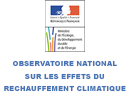Governmental and Non-Governmental Players in Climate Policy
Governmental and Non-Governmental Players in Climate Policy
International climate warming negotiations entered a new phase after the 2001 Marrakech Agreements, which culminated in the implementation of some of the major provisions of international agreements and the simultaneous launch of discussions on the future of the regime. For both governmental and non-governmental players, this new development is reflected in changes in the way they approach the diplomacy game.
The European Union’s increasing role as a negotiation structure and a body producing a legal framework for the principal decisions taken in Kyoto and Marrakech is also obliging players to modify their structural organisation and their strategies. Government environment departments, which have historically controlled the decision-making process, are now faced with the increasing complexity and politicisation of the climate issue. They are having to manage interactions between the technical and political aspects of negotiations.
EU provisions that have been introduced have had equivocal results: decision-making processes are muddled, expertise is being swapped and alliances and conflicts are taking place in different places and at different levels. Environmental NGOs, which have played a decisive role in putting the climate issue on the agenda, are also having to deal with these developments.
In the three countries in our study, quality teams are being built up and becoming more professional, but in spite of this there are still differences between the resources and strategies used by French, British and German players, French players being in a much weaker position overall than their foreign counterparts.
As regards the corporate sector, which is less dependent on national boundaries, a profound change is taking place in the organisations’ approach. Climate change and climate negotiations are becoming a major topic. The people responsible for these matters within the organisations are at an increasingly higher level in the company hierarchy. Companies in Europe currently acknowledge that global warming is a problem and that ambitious policies are needed in the area of cutting gas emissions. They are participating more and more in diplomacy, especially at EU level, in particular by developing opinions and working on technical lobbying on climate change which is proving to be particularly effective.
Think-tanks and research organisations are less sensitive to these changes. However, knowledge production is not their only concern: they are taking a growing interest in the establishment of international agreements and consistency between public action and international negotiations. There are considerable disparities between countries both in the nature of these organisations and their political role. In France, public sector research plays a decisive role; there are far fewer think-tanks in France and they are less active than in Germany or the UK. Strong politicisation of the climate issue, which is clear from the media attention given to it and its presence at all international discussion and summits, especially the G8, raises the question of climate diplomacy governance. The field is more open and is also becoming more technical; the relationship between politicians and scholars and experts is becoming more complex and needs to be looked at in a new light.
| Coordinators |
Marie-Christine Kessler, CNRS – CERSA |
| Funding |
ADEME
|
| Budget |
40 000€ (including tax)
|




